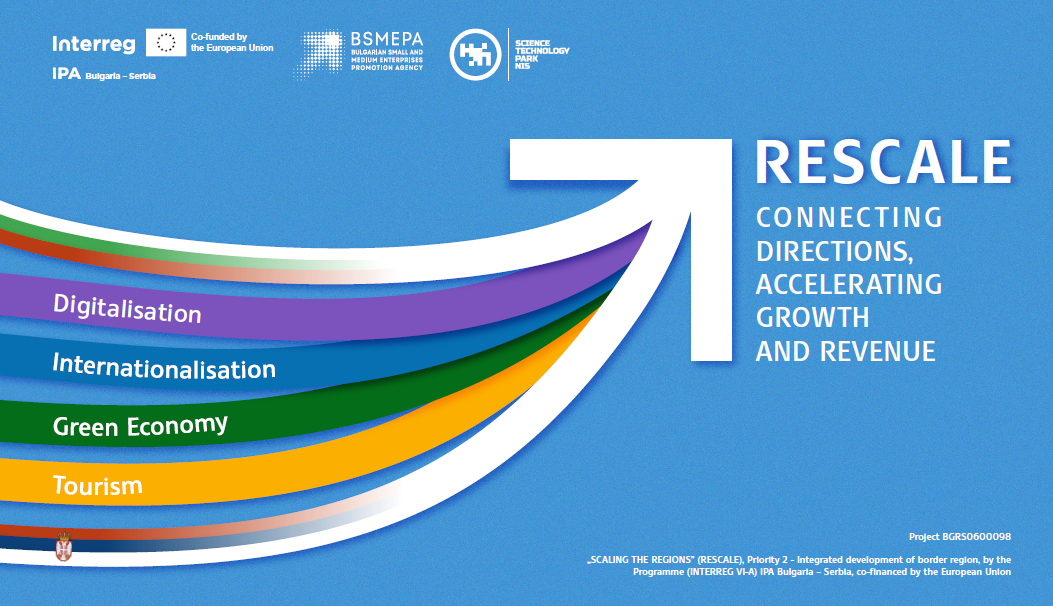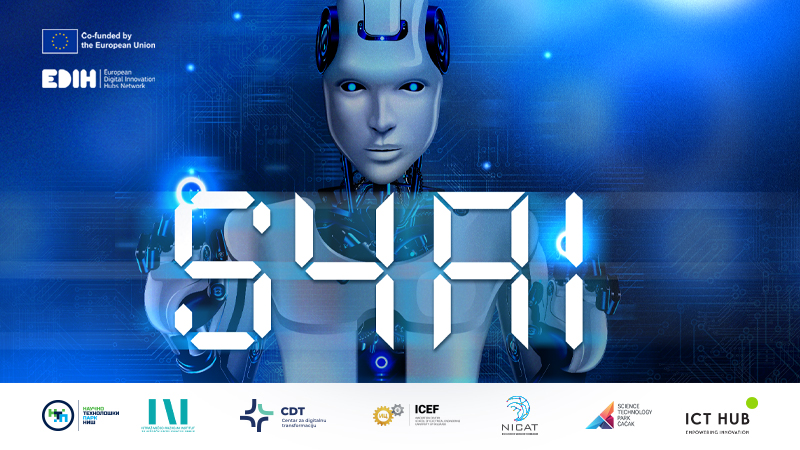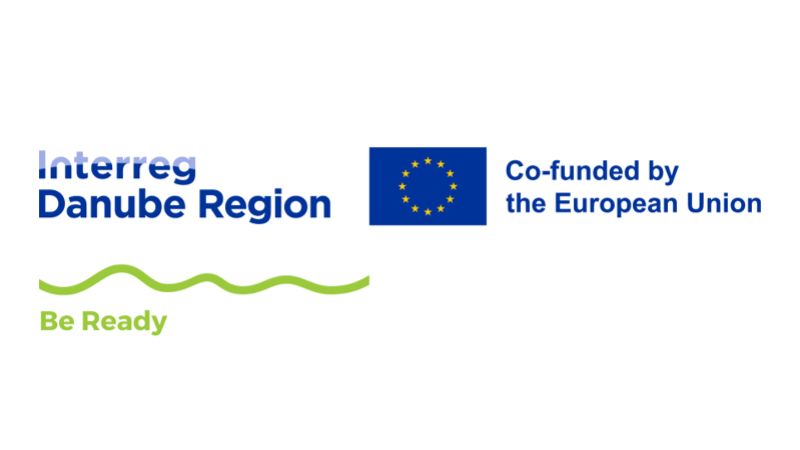Project Title: Scaling the Regions (RESCALE)
Project Lead: Bulgarian Small and Medium Enterprises Promotion Agency
Project Partners: Privredna komora Srbije, Naučno-tehnološki park Niš
Project Budget: €6,020,784.00
Funding Programme: Interreg IPA Bulgaria–Serbia Programme, co-funded by the European Union
Project Objective
The main objective of the project is to strengthen the factors that contribute to better connected, more innovative, and more efficient support and advisory systems delivered by national and local agencies (business support organizations and chambers of commerce) to promote small and medium-sized enterprises (SMEs).
“Scaling the Regions” aims to properly address, leverage, and maximize the existing business support potential for regional competitiveness by networking relevant institutions across the cross-border region and improving and channeling their SME support practices.
The project duration is 36 months, from 13 December 2025 to 12 December 2028.
Project Activities
- New Cross-Border SME Discovery & Readiness Assessment Approach – targeting and selecting companies from Serbia and Bulgaria and assessing their readiness to participate in the project
- Joint Capacity Development Model for SME Transformation – organizing a series of events for SME representatives from Serbia and Bulgaria to participate in relevant educational and capacity-building activities
- Joint Market Exposure & Innovation Acceleration Scheme – organizing visits to international fairs and exhibitions to connect SME representatives with peers from other regions and countries
- Regional Business Integration & Strategic Positioning Platform – organizing stakeholder events to present project results, SME success stories developed during project implementation, and successful initiatives that foster future cooperation


